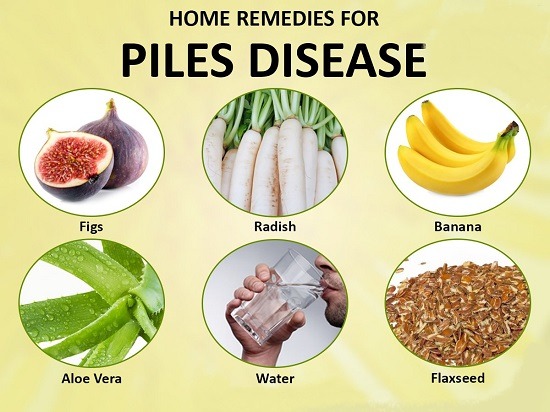Effective Natural Home Remedies and Dietary Tips for Curing Piles
Learn about piles (haemorrhoids), their symptoms, causes, and effective treatments in this comprehensive guide. Discover natural home remedies like sitz baths, aloe vera, and dietary adjustments to alleviate discomfort and promote recovery. Understand the importance of lifestyle changes, including proper hydration, regular exercise, and fibre-rich diets, to prevent recurrence. Whether you're dealing with mild symptoms or seeking preventative measures, this post offers practical tips to manage and cure piles effectively for long-term relief.
Nature Cure Lab
3 min read



Piles and Their Symptoms
Piles, medically known as haemorrhoids, are swollen and inflamed veins located in the rectum and anus. These can be broadly categorized into two types: internal and external piles. Internal piles occur inside the rectum and are usually painless, but they can cause bleeding during bowel movements. On the other hand, external piles form under the skin around the anus, leading to more noticeable and often painful symptoms.
The severity of piles varies, ranging from mild discomfort to severe pain and bleeding. Common symptoms include itching, swelling, and irritation in the anal region. Many individuals also experience pain during bowel movements, and in some cases, there may be visible bleeding from the rectum. More advanced piles can create a significant bulge around the anus and may turn into prolapsed haemorrhoids, which require immediate medical attention.
Understanding piles' causes and risk factors is essential for effective treatment and prevention. Chronic constipation is a primary contributor, often resulting from a diet low in fibre. Straining during bowel movements can exert pressure on rectal veins, leading to haemorrhoid formation. Additionally, prolonged sitting, whether due to occupational reasons or a sedentary lifestyle, can increase the risk of developing piles. Pregnancy is another significant factor, as the growing uterus puts extra pressure on the veins in the rectal area.
Risk factors also include obesity, a family history of haemorrhoids, and a lack of physical activity. In some cases, heavy lifting and engaging in activities that require repeated straining can aggravate existing piles or trigger new occurrences. By understanding these underlying causes and symptoms, individuals can better appreciate the importance of lifestyle modifications and dietary adjustments, which are pivotal in managing and curing piles effectively.
Home Remedies and Dietary Adjustments for Fast Relief
When tackling piles, several effective home remedies and dietary adjustments can significantly aid in alleviating symptoms and promoting a swift recovery. To begin, one of the most soothing remedies is a sitz bath. This involves sitting in warm water for 15-20 minutes several times daily, particularly after bowel movements. Warm water helps reduce inflammation and discomfort in the affected area. Ice packs can also be applied to the anal region for short periods to reduce swelling and numb the pain.
Aloe vera is another excellent natural remedy known for its anti-inflammatory and healing properties. Applying pure aloe vera gel to the affected area can provide significant relief. Witch hazel, available in liquid form or medicated pads, is another astringent that can help reduce pain, itching, and bleeding. Both these remedies are gentle and help to soothe irritated skin.
Over-the-counter creams and ointments containing ingredients like hydrocortisone or lidocaine can also reduce inflammation and numb the pain. These topical treatments should be used to avoid potential side effects.
Beyond these remedies, dietary adjustments play a crucial role in managing piles. Increasing fibre intake is essential for alleviating constipation and reducing straining during bowel movements. Incorporating a variety of fruits, vegetables, and whole grains into your diet can make a significant difference. Specific foods such as papaya, figs, and yam are particularly beneficial. Papaya contains enzymes that aid digestion, figs are rich in fibre, and yams are known for their excellent starch content, making bowel movements easier and smoother.
Practical approaches to integrating these foods into daily meals include adding papaya slices to your breakfast, snacking on dried or fresh figs throughout the day, and incorporating yam into your lunch or dinner dishes. These dietary changes help provide immediate relief and support overall digestive health, thus aiding in the prevention of future occurrences.
Implementing Lifestyle Changes to Prevent Recurrence
Preventing the recurrence of piles largely hinges on adopting certain lifestyle modifications. These alterations promote digestive health and reduce the strain on your bowel movements.
First and foremost, maintaining proper hydration is essential. Drinking at least eight glasses of water daily can ensure that your stools stay soft, considerably easing the process of passing them. This small habit can significantly mitigate the chances of piles returning.
Incorporating regular physical activity is another crucial element. Exercises like yoga and walking enhance overall circulation, supporting healthy bowel function. Specific yoga poses like the Malasana or Garland Pose directly encourage digestive health. Additionally, engaging in pelvic floor exercises can strengthen the muscles in your pelvic region, further assisting in preventing piles. Aim for at least 30 minutes of moderate activity daily to keep your circulatory system and digestive processes in peak condition.
Adopting proper bathroom habits also plays a significant role. Do not delay bowel movements, as procrastination can lead to constipation and increased straining. Establishing a regular bathroom routine is advisable to avoid undue stress on the rectal area. When using the bathroom, avoid excessive straining; consider using a footstool to align your rectum to make passing stools easier.
Long-term dietary habits can markedly influence your risk of developing piles again. A fibre-rich diet—from fruits, vegetables, whole grains, and legumes—cultivates a healthy digestive tract. Soluble fibre, in particular, helps absorb water, forming a soft gel-like consistency that eases stool passage.
Natural supplements can also be beneficial in maintaining colon health. Probiotics, for example, help balance gut bacteria and aid digestion, while herbal supplements like psyllium husk can enhance fibre intake. However, always consult with a healthcare professional before starting any supplement regimen.
INSPIRE
Healing from within for a healthier, happier life.
subscribe
info@naturecurelab.com
© 2024. All rights reserved.
